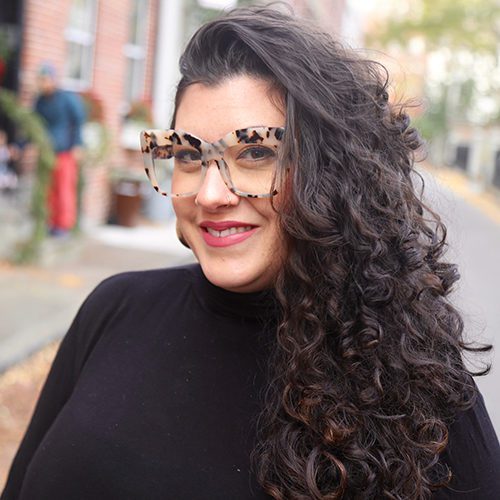
Publications
Conference Presentations
Lilly B. Padía was raised in an interfaith, Russian-Jewish, white and Mexican-American family in a predominantly Black city. She attended public schools in Oakland from kindergarten to 12th grade, where the legacy of the Black Panther Party shaped her approach to education as liberation.
She comes to Chicago by way of the Bronx, New York, where she taught grades K-8 as a certified bilingual special education teacher and instructional coach. She worked as an adjunct professor and academic advisor for graduate Bilingual, English as a New Language (ENL), and Special Education teachers at CUNY's City College of New York and Hunter College.
Prior to teaching, Lilly did community organizing work around youth empowerment, housing rights, and anti-displacement. She carries this into her teaching work, guided by the belief that all good teachers are also community members and activists. “Our students and families at the intersections of multilingualism, dis/ability, and documentation status face unique challenges, and also bring unique assets to our learning communities,” she says. “It is important for educators to approach families and children as co-collaborators, co-conspirators, and co-constructors of the world we all want to live in.”
Her research looks at the intersections of language learning and dis/ability. Specifically, she focuses on children who are multilingual and do not speak to communicate. She centers families’ communication practices and systems to highlight what schools and school professionals can learn from children and families. Her work challenges the white supremacist norms that position dis/ability and language learning as deficit and inferior in United States schooling. She believes that liberatory learning involves young people and families as the experts and guides in the learning process.
“Too often ‘expertise’ is tied to educational professionals,” she says. “Children are the truest experts of their own experiences, followed by family members. As educators, we have to remember that learning neither starts nor stops within the walls of school buildings.”
Lilly is an Assistant Professor of Raciolinguistic Justice in Early Childhood Teacher Education at Erikson Institute and received her PhD in Teaching & Learning at New York University.